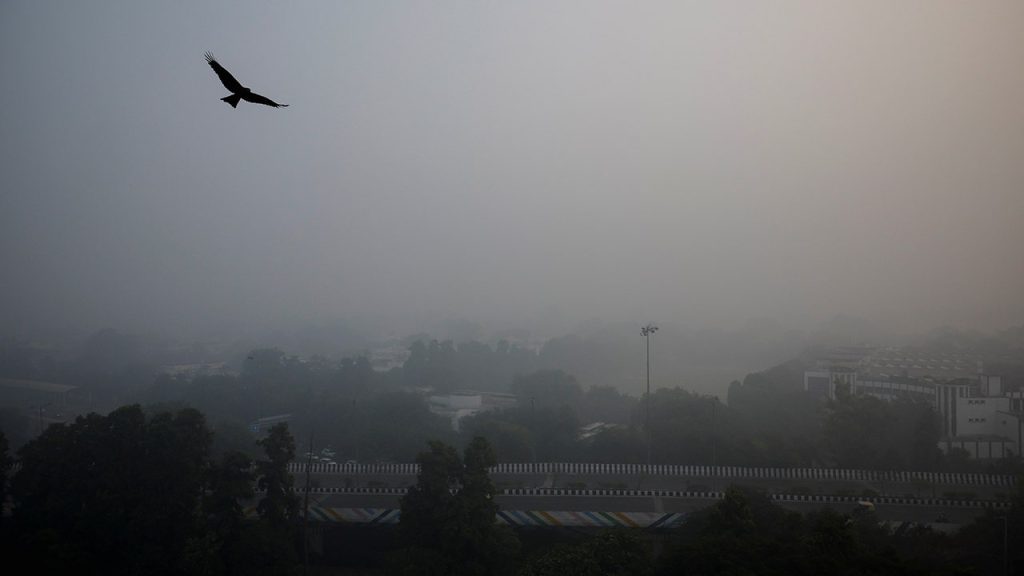The Indian government has taken steps to combat the severe air pollution in New Delhi, including a ban on non-essential construction and urging residents to avoid burning coal for heating. The new measures also include sprinkling water with dust suppressants on roads and mechanized sweeping to settle dust. The government is implementing these measures to improve air quality that has affected flights and obscured landmarks such as the Taj Mahal.
Delhi’s Chief Minister Atishi has directed all primary schools to shift to online classes in response to the worsening air quality. The government is also encouraging the use of public transport and asking citizens to avoid using coal and wood for heating. Air quality in Northern India has deteriorated, with toxic smog obscuring famous sites like the Taj Mahal and Sikhism’s holiest shrine, the Golden Temple in Amritsar. New Delhi has a severe air quality level of 424, the worst among global capitals according to Swiss group IQAir.
The city faces smog every winter as a toxic mix of smoke and fog is trapped by cold air, along with dust, emissions, and smoke from illegal farm fires. Stubble burning in neighbouring states of Punjab and Haryana has contributed to around 38% of the pollution in New Delhi this year. Flights in and out of Delhi have been delayed due to the smog, with visibility dropping to 300m at the city’s international airport. Officials have reported an increase in patients, especially children, seeking medical attention for allergies, coughs, and asthma attacks.
The pollution in New Delhi is expected to remain in the “severe” category, according to the earth sciences ministry, before improving to “very poor.” The number of farm fires in northern India has steadily increased this week, reaching almost 2,300 on Wednesday from 1,200 on Monday. Lahore, the capital of Pakistan’s eastern province of Punjab, was rated the most polluted city in the world on Thursday, according to IQAir’s rankings. Authorities in Lahore have also been dealing with hazardous air quality this month.
Overall, the Indian government is taking steps to address the severe air pollution crisis in New Delhi. By implementing measures such as a ban on non-essential construction and encouraging the use of public transport, they aim to improve air quality and reduce health risks for residents. The worsening air quality has led to flight delays and obscured famous landmarks, highlighting the urgent need for action in combating pollution in the region. The rise in farm fires and stubble burning contribute significantly to the pollution levels, emphasizing the importance of addressing these issues to improve overall air quality in Northern India.


